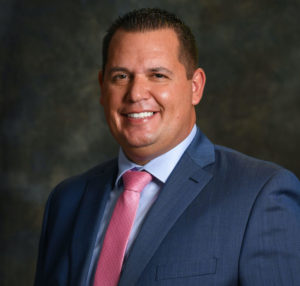McKinney DWI Attorney

While an accusation of DWI may not seem very serious, the outcome could alter your life entirely. The laws in Texas are very harsh on drivers who are caught driving under the influence, and law enforcement officials and judges do not take this crime lightly.
If you were recently arrested for driving while intoxicated or accused of DWI, you need a skilled McKinney DWI defense attorney to represent you. At the Edgett Law Firm, our firm is committed to providing aggressive, effective legal defense.
Contact our firm today to learn more about how our McKinney DUI attorneys can help. Call 972-525-4963 or fill out an online contact form. Free consultation!
Working To Protect Your Future In Mckinney, Tx

When you are arrested for any type of crime, your future is on the line. If the DWI charges involve any other elements such as injuring another person, you could be facing increased consequences. Hiring an experienced McKinney DWI lawyer can help you protect your rights and your future, whether it is your first DWI or you have been previously charged with a DWI.
Our firm offers more than a decade of legal experience, and we are committed to protecting your rights and fighting for your best interests. Our McKinney criminal defense team represents a wide range of cases, including those which involve the suspension of occupational driver’s licenses, intoxication assault, and intoxication manslaughter.
Our law firm can also strive to win you a favorable outcome if you are going through an ALR hearing.
The consequences for DWI may include the following, depending on the nature of the crime:
- License suspension
- Jail time
- Mandatory counseling
- Substantial fine
The Stages Of A Dwi Case
Getting arrested and charged with a DWI in Texas can be a terrifying and frustrating process. To prepare yourself for what your future lies ahead, it is imperative to get a complete understanding of the process.
Dwi Arrest
In Texas, anyone over the age of 21 years old with a BAC of .08% or more will be charged with a DWI. If you happen to be under the legal drinking age of 21, any amount of alcohol found in your system will result in a DUI charge.
If a police officer witnesses you driving erratically, it may cause them to suspect that you are under the influence, pull you over, and administer a breathalyzer or standardized field sobriety test to determine your sobriety. Not only can the results of the test be enough to establish probable cause, but other forms of evidence – such as empty beer bottles in your vehicle, a strong smell of alcohol coming from your vehicle, as well as slurred speech and uncoordinated movements – can be enough to make an arrest.
Booking
As soon as you are arrested, the police officer will take you to their station and start processing your charges and information, such as your name, date of birth, and physical characteristics. You will then be searched, and your personal belongings will be confiscated. Afterward, you will be placed in a holding cell until you can post bail or are released due to your own recognizance.
Release From Custody
Once the booking process is over, you have a chance of earning your release from police custody until your appointed court date. If a bail amount is established, you must pay the complete amount before your release.
If you cannot afford the set bail amount, you or your loved ones have the option of making a deal with a bail bond agency. You will often pay a small percentage of the bail upfront. However, these agencies may require additional collateral in case you fail to make your court date appearance.
Dwi Arraignment
Your first court appearance is considered an arraignment. The judge will read the charges being brought against you, ask if you require an attorney, ask how you plead to the charges, announce future court dates (if you decide to plead guilty), and make alterations to your bail (if applicable).
For most people, arraignment is the only time they will need to be in court, especially if they plead guilty. However, if you decide to plead not guilty, then you must return to court for a preliminary hearing and trial.
Preliminary Hearing
If you and your attorney choose to plead not guilty at your arraignment, then you will need to attend a preliminary hearing, where the judge decides if there is enough evidence against you to make a trial date.
The state prosecutor will typically call witnesses to help prove that you should be tried in front of a jury. However, your attorney can cross-examine these witnesses as well. Furthermore, the prosecution may present additional evidence to prove further that you were driving while intoxicated, which your lawyer can argue.
At the end of the hearing, the judge will either dismiss your case or send it to trial for a jury to decide the outcome.
Dwi Trial By Jury
If the preliminary hearing judge decides there is enough sufficient evidence against you, you and your lawyer will go to trial. The court will interview people for the panel, then allow your lawyer and prosecution to determine which ones are unfit for the case.
The trial process begins with opening statements from both sides; then, each side can bring in their own witnesses and perform cross-examinations. Closing arguments from both parties are made, then the jury deliberates and makes a decision.
Sentencing For A Dwi
If you plead guilty or are found guilty by a jury, a judge will determine your sentence of punishment. Depending on the severity of your charges and the number of convictions on your criminal record, you may be subject to fines, incarceration, license revocation, installation of ignition interlock devices, enrollment in DWI school, or car impoundment.
Schedule Your Free Consultation Today
We truly care about your future, and we work hard for each and every one of our clients to achieve a successful outcome. With our firm, you can expect honest and open communication about the nature of your case and your options. Set up an appointment for a complimentary case evaluation by calling 972-525-4963.
 Call Us Now
Call Us Now Email Us Now
Email Us Now